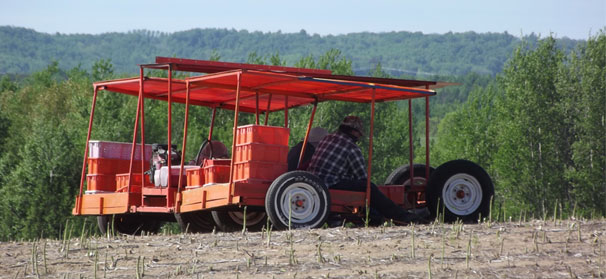

Apr 23, 2012MSU closing Muck Soils Research Farm
Like other land-grant institutions, Michigan State University (MSU) is experiencing a budget crunch. For that reason, officials are taking a hard look at the university’s statewide network of 15 agricultural research stations, said Steve Pueppke, director of AgBioResearch, the MSU division that controls Extension as well as research centers.
One of the stations, Muck Soils Research Farm in Laingsburg, is closing within the year, but not entirely due to tight budgets. A water issue there has made the station less than ideal for vegetable research, Pueppke said.
The Muck Soils Research Farm is one of three organized organic soil research centers in the country. Research being conducted at the 441-acre site includes studies on weed, insect and disease control with pesticides and/or cultural management practices; cultivar evaluations; tillage; crop rotation; sub-irrigation; nutrient management; and potato late blight. Crops researched on the farm include carrots, celery, onions, potatoes, sweet corn, radishes and lettuce. This research will move to other stations or to grower farms, Pueppke said.
The Clarksville Horticultural Experiment Station, between Lansing and Grand Rapids, is facing a cloudy future. However, ongoing fruit experiments at Clarksville have delayed major decisions for the moment, Pueppke said.
“We’re having discussions about what we need for our researchers in the future and what growers need from us,” he said. “We’re trying to balance what we have in the checkbook with the support we’ve gotten from the state, with what we need for research. Budget issues are very much on our minds.”
Clarksville hosts a variety of experiments, including fruit and vegetable trials. The station sits on 440 acres, but only a fraction of those are used for the trials.
MSU Extension Educator Phil Schwallier said Clarksville lacks the support of similar-size operations like the Northwest Michigan Horticultural Research Station near Traverse City, where local growers purchased the land and lease it to the university for $1 per year; or the Trevor Nichols Research Complex near Fennville, which is supported through grants and funding to conduct pest and disease trials. And unlike other Michigan research stations, Clarksville has no full-time staff.
Grower support will be crucial for the station’s survival, Schwallier said.
“The other research stations MSU operates that are remaining open have tremendous support from either the growers involved with them, such as the Northwest station, or from the industries they reflect, like at Trevor Nichols,” he said. “That commitment is needed here as well.”
Strengthening the partnership with growers is vital, Pueppke said.
“One of the strongest signals that can be sent to those in control of the budget is who is willing to step up and help support this vital research,” he said.
By Derrek Sigler, Assistant Editor














